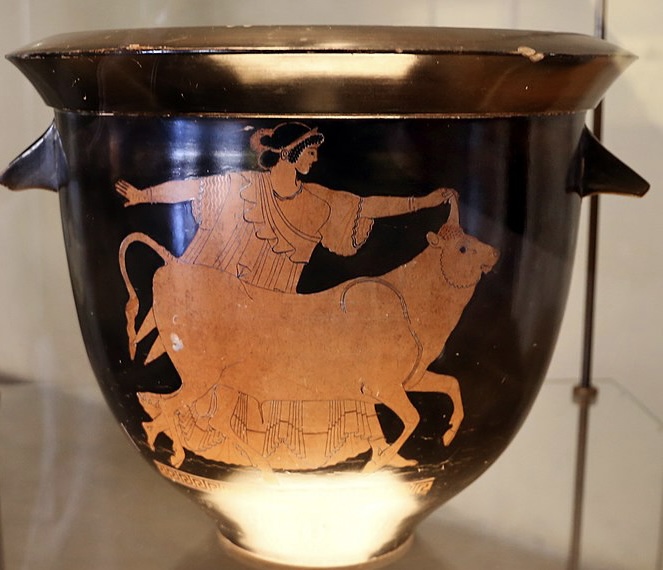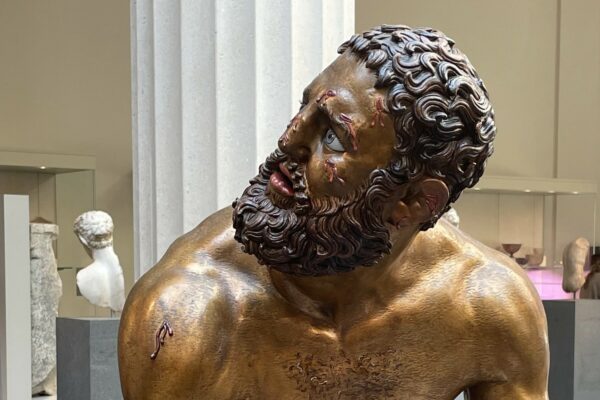
Ancient My Little Pony was stupid.
Acquisition no. 3: A pot by the “Berlin Painter,” where a unicorn bull pulls a very creepy magic trick.
This episode of Honest Museum Signs brought to you by CLAS-C 205 Classical Mythology.
Social media is full of series that feature the greatest works of ancient art. This is not one of those series. This is Honest Museum Signs, a series devoted to the belief that with ancient artifacts, as with everything else, “they can’t all be winners.” Here we plumb the bottom of the ancient barrel to present artistic oops-i-daisies, along with the honest museum information that reflects what archaeologists are really thinking when they analyze these misfires.
This is a pot. It is supposed to show the princess Europa being stolen by Zeus, who has taken the form of a bull. What it actually shows is some girl giving a unicorn bull a little pinch on his horn. This is fine, because the intended story is so inherently nonsensical, that either option—abduction by bull or pinch a fat unicorn—makes equal sense. Surprisingly, this story became the source of the term ”Europe,” seriously undercutting the cache of the phrase “European vacation.”
Note how the girl’s bottom half does not even vaguely line up with her top half, given her the appearance of a magician’s assistant who was sawn in half and then shrunk her top half in the wash. This awkward composition is due to the artist really being perplexed by the unusual situation of having “one thing standing in front of another thing.” Scholars call the artist who painted this pot “the Berlin painter,” because the most famous pot recognized to be by the same artist is housed in Berlin, and art historians are terrible at making up interesting names for things. In turn, scholars call the technique used by the Berlin Painter to paint the pot “red-figure” because the figures are…wait for it…red.
Scholars date the pot to the first decade of the 5th c. BCE because if they admitted they had no idea, they would feel small inside. This pot was discovered in the Etruscan site of Tarquinia, Italy. Nevertheless, because people really like the Ancient Greeks, scholars insist the pot is “Greek,” despite its having no more objective connection to Greece than the Olive Garden has to Italy.
Photo credit: Sailko via Wikimedia Commons.


